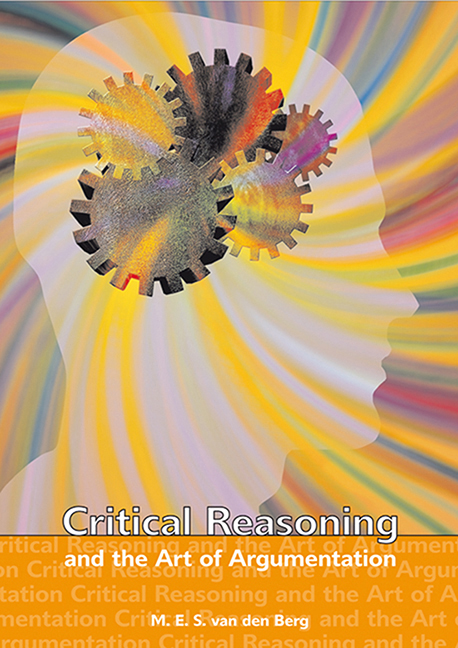Book contents
- Frontmatter
- Contents
- Preface
- CHAPTER 1 What is critical reasoning?
- CHAPTER 2 Obstacles to clear thinking: Preconceived ideas and fallacies
- CHAPTER 3 Working with arguments
- CHAPTER 4 How to analyse arguments
- CHAPTER 5 Definitions, counterexamples and counterarguments
- CHAPTER 6 Evaluating arguments
- CHAPTER 7 Applying your knowledge and skills to the evaluation of arguments
- CHAPTER 8 Constructing arguments and writing argumentative essays
- References
- Glossary
- Index
Preface
Published online by Cambridge University Press: 20 February 2020
- Frontmatter
- Contents
- Preface
- CHAPTER 1 What is critical reasoning?
- CHAPTER 2 Obstacles to clear thinking: Preconceived ideas and fallacies
- CHAPTER 3 Working with arguments
- CHAPTER 4 How to analyse arguments
- CHAPTER 5 Definitions, counterexamples and counterarguments
- CHAPTER 6 Evaluating arguments
- CHAPTER 7 Applying your knowledge and skills to the evaluation of arguments
- CHAPTER 8 Constructing arguments and writing argumentative essays
- References
- Glossary
- Index
Summary
Like the first edition, the purpose of this revised edition of Critical reasoning and the art of argumentation is to help you develop critical reasoning skills and improve your ability to reason well about problems you may encounter in everyday life. Developing and applying critical reasoning skills is globally recognised as a basic competency, like reading and writing. In Africa, as in the rest of the world, we are confronted with many social, political and moral issues, such as poverty, unemployment, violence and crime, corruption, health care, insider trading, HIV/AIDS, and end-of-life decisions. The ability to think critically is essential if we are to deal competently with any of these issues. Developing critical reasoning skills will help you to unearth false assumptions, uncover hypocrisy, expose stereotypes, and lay bare wrong-headed beliefs.
I encourage you to analyse and question those in authority, including your lecturers, and to critically question stereotypical ideas (including your own stereotypical ideas) and fundamentalist thinking. I also urge you to apply the critical reasoning skills and techniques that you acquire in this book to real-life contexts: your work situation, your home and family, interaction with your community, and your engagement with other fields of study, such as psychology, health care, development studies, public administration, political science, teacher education, social work, jurisprudence, and so on.
Although some of the text has been rewritten to improve the general organisation and layout, the subject matter itself has not changed. The main changes in this edition are the following:
1. More up-to-date examples have replaced outdated ones. Some new examples have been drawn from major sociopolitical events that have occurred in South Africa during the past few years, such as the Zuma trial, political conflict, race relations, and xenophobia. Other new examples have been based on events that have occurred in the rest of Africa and the world, such as the situation in Zimbabwe, political events in Darfur, the war in Afghanistan, and the change of administration in America.
2. Some old exercises have been replaced by new exercise items drawn from newspapers, advertisements, political speeches, literary works, the internet, and debates about xenophobic violence, crime, the death penalty, abortion, euthanasia, inequality and health care.
- Type
- Chapter
- Information
- Critical Reasoning and the Art of Argumentation , pp. ix - xiiPublisher: University of South AfricaPrint publication year: 2010



